Did you know that 97% of firms believe that effective project management software is vital for their success? Staying organized and on top of tasks is crucial in the fast-paced world of engineering projects. That’s where project management software comes into play.
In this article, we’ll explore the five best project management software solutions tailored specifically for engineering firms. These tools are designed to streamline your projects, enhance collaboration, and keep your team on the same page.
Whether you’re a civil engineer managing infrastructure projects or an electrical engineer overseeing complex systems, finding the right software can make a world of difference. Let’s dive in and discover the top picks that can help your engineering firm thrive in today’s competitive landscape.
Quick List of 5 Project Management Software for Engineering Firms
- AutoCAD – Ideal for design-focused firms, it offers powerful drafting and 3D modeling tools.
- Procore – A construction-focused platform with robust project management and collaboration features.
- Zoho – Offers advanced scheduling and project controls for large-scale engineering projects.
- Smartsheet – A versatile tool for easily tracking tasks and managing project data.
- Asana– Simple, visual, and highly customizable, great for smaller engineering teams.
Our reviewers evaluate software independently. Clicks may earn a commission, which supports testing. Learn how we stay transparent & our review methodology
Comparison Chart Of Project Management Software for Engineering Firms
Below is a comparison chart for Project Management Software for Engineering Firms.
Tool Name | CAD Integration | Risk Management | Version Control | Documentation |
 | Native CAD Files | Risk Analysis Tool, Prediction and Analytics | File Versioning | Document Manager, Smart Blocks, My Insights |
 | CAD Connect | Risk Registry, Preconstruction, Project Execution | Revision History | Drawing Log, Own and archive all of your data. |
 | CAD Viewer | Risk Assessment, Regulated workflows | Version Backup | Document Store, Built in document editors, View DWG files |
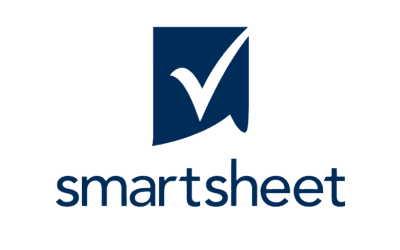 | CAD Links | Risk Charts, Risk planning templates | Version Tracking | Sheet Attachments, Document Builder, Map sheet |
 | CAD File Attach | Risk Flags, Risk register template | File Versions | File Storage, Rule actions, Webhooks |
What is Project Management Software for Engineering Firms?
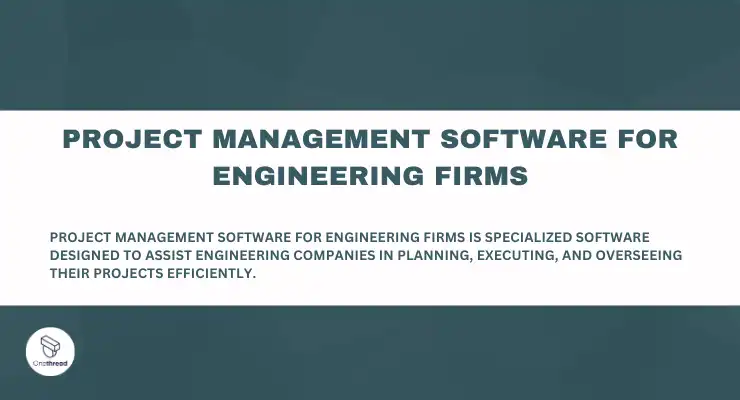
Project Management Software for Engineering Firms is specialized software designed to assist engineering companies in planning, executing, and overseeing their projects efficiently.
This type of software offers a range of tools tailored to the unique needs of engineering projects, including task scheduling, resource allocation, budget tracking, and collaboration features. It helps streamline the workflow, centralize project data, and enhance communication among team members, stakeholders, and clients.
Engineering firms rely on this software to ensure projects are completed on time, within budget, and with the highest quality standards, making it an indispensable tool in the field of engineering project management.
How Project Management Software for Engineering Firms Can Help Your Business?
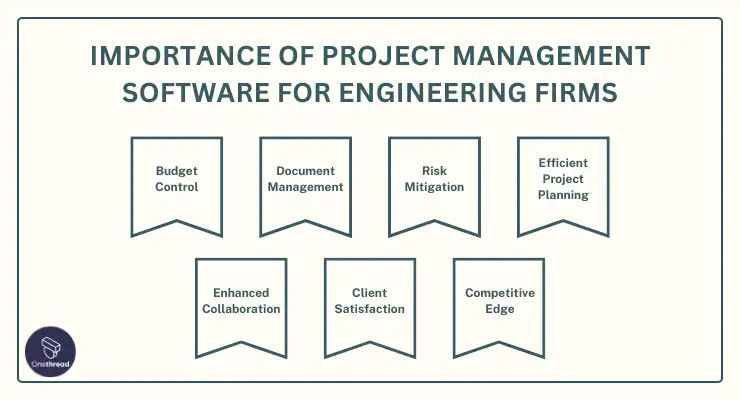
Project Management Software for Engineering Firms can significantly benefit your business in various ways:
- Budget Control: Helps manage project finances by tracking expenses, preventing cost overruns, and optimizing resource utilization.
- Document Management: Centralizes project documentation, making it easy to access and update critical files and blueprints.
- Risk Mitigation: Identifies potential project risks early, allowing for proactive risk management and issue resolution.
- Efficient Project Planning: It enables precise project scheduling, resource allocation, and task assignment, ensuring projects stay on track.
- Enhanced Collaboration: Facilitates seamless communication and file sharing among team members, promoting better teamwork and reducing errors.
- Client Satisfaction: Ensures projects are completed on time and meet client expectations, leading to higher client satisfaction and referrals.
- Competitive Edge: By improving project efficiency and accuracy it helps engineering firms stand out in a competitive market.
Key Features to Consider in Project Management Software for Engineering Firms
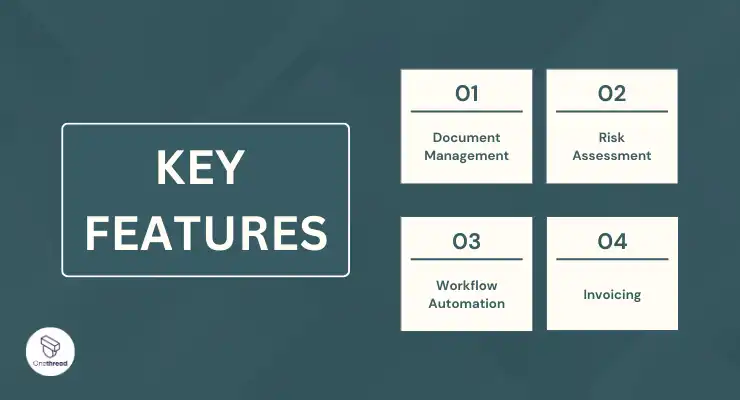
Project management software is more than just a tool; it’s the backbone of your engineering project management process. To make an informed decision, it’s crucial to consider key features that align with your firm’s needs.
In this section, we delve into four essential features:
Document Management:
This feature allows you to centralize and organize project-related documents, including blueprints, contracts, and reports, ensuring easy access for your team.
Version control and document tracking minimize the risk of errors, while permission settings ensure data security. Robust search and retrieval capabilities save time, and seamless collaboration tools keep everyone on the same page.
Risk Assessment:
Project Management Software equipped with robust risk assessment tools helps you proactively identify potential challenges. It allows you to assess their impact, likelihood, and severity.
With this data, you can create risk mitigation plans, allocate resources accordingly, and monitor risk status throughout the project’s lifecycle, reducing unexpected setbacks.
Workflow Automation:
Workflow automation features enable you to create standardized workflows for tasks such as approvals, change requests, and quality checks.
These workflows ensure that every step of the project follows a predefined process, reducing human errors and delays. Automated notifications and reminders keep team members on track, and data-driven insights help you optimize processes over time.
By incorporating quality engineering practices into these workflows, you can further enhance product integrity and compliance with industry standards.
Invoicing:
Project Management Software with integrated invoicing features simplifies the billing process. It allows you to generate invoices based on project progress, expenses, or fixed fees.
You can track payments, send reminders for overdue invoices, and maintain a clear financial overview. This feature not only ensures that you get paid promptly but also helps in budget management and financial forecasting.
Top 5 Project Management Software for Engineering Firms:
Efficient project management is essential for engineering firms. To simplify your workflow and enhance productivity, we’ve curated the top 5 Project Management Software solutions tailored to engineering needs.
#1. AutoCAD
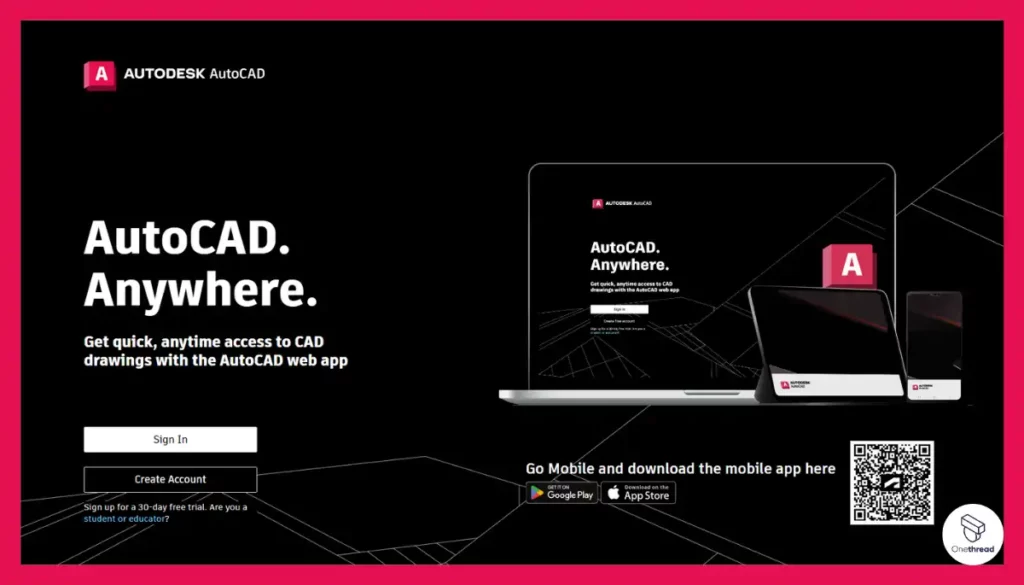
AutoCAD is a powerful software tool that’s indispensable for engineering firms. It simplifies project management, making it easier to design, draft, and document projects.
With AutoCAD, you can create precise 2D and 3D drawings, collaborate seamlessly with your team, and manage your projects efficiently. It’s a go-to solution for architects, engineers, and designers worldwide.
This user-friendly software streamlines tasks, boosts productivity, and ensures accuracy in your projects. AutoCAD is the key to turning your engineering ideas into reality, providing the tools you need for success. Here’s why it stands out.
AutoCAD Overview
- Company Valuation: $44.23 billion as of October 2, 2023.
- Employee Numbers: 10,100
- Founding Team: AutoCAD was initially developed by John Walker and 12 other programmers in the early 1980s. It played a pivotal role in the growth of Autodesk as a company.
Features
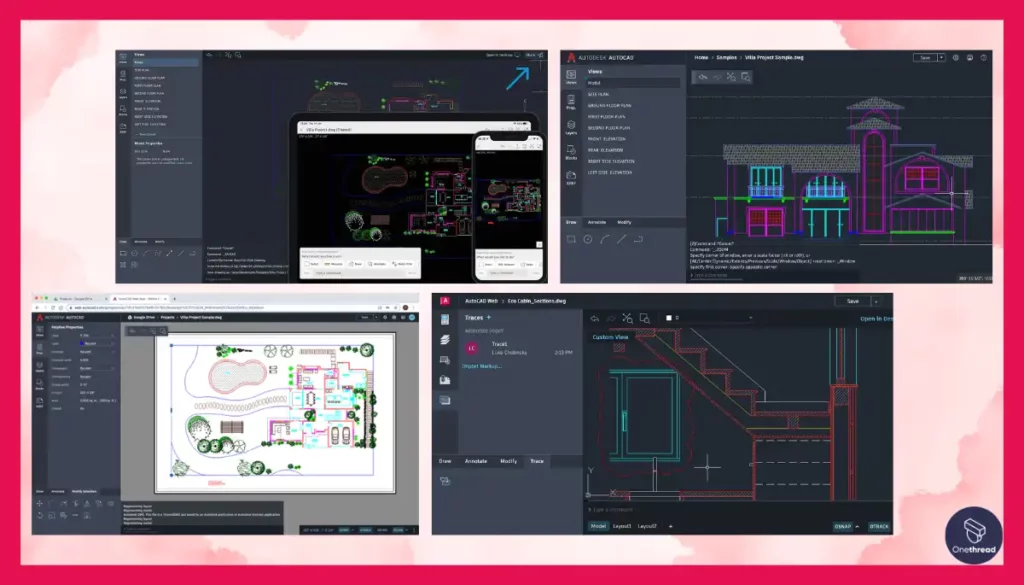
2D and 3D Design Capabilities
AutoCAD allows engineers to create both 2D and 3D designs. This is crucial for visualizing a project from every angle. It helps in better planning and spotting potential issues before they become real problems. For civil engineers, AutoCAD Civil 3D training enhances these capabilities by providing specialized tools for infrastructure design, land development, and grading solutions, making the planning process even more efficient.
Customizable Interface
The software offers a customizable interface. Engineers can tailor the workspace to suit their needs. This makes it easier to access the tools you use most often, improving efficiency.
Extensive Library of Pre-designed Elements
AutoCAD has a rich library of pre-designed elements. These can be easily dragged and dropped into your designs. This saves time and ensures consistency across different projects.
Collaboration Tools
The software supports real-time collaboration. Team members can work on the same project simultaneously. This speeds up the project timeline and ensures everyone is on the same page.
High-Quality Output Formats
AutoCAD supports multiple file formats for output. This includes high-quality PDFs and DWGs. This flexibility makes it easier to share your work with clients or team members.
Pros & Cons
Pros:
- User-friendly interface
- Strong community and support
- Versatile design capabilities
Cons:
- Steep learning curve
- Can be expensive for small firms
Pricing Plans

- Basic Plan: $210/month
- Standard Plan: $420/month
- Enterprise Plan: Custom pricing
Customer Ratings
- G2: 4.5 out of 5 stars
- Capterra: 4.7 out of 5 stars
Review
AutoCAD is powerful design software. We appreciate its versatility, as it aids in various industries like architecture and engineering. It excels in creating precise 2D and 3D drawings.
On the plus side, AutoCAD’s user-friendly interface helps us quickly grasp its functions. The extensive library of tools and commands boosts our productivity. It’s like having a digital drafting board at our fingertips.
However, there are downsides. The price tag is hefty, especially for individual users or small businesses. Also, AutoCAD can be resource-intensive, demanding high-performance hardware.
AutoCAD is a vital tool for professionals seeking precision and efficiency in design. We admire its capabilities but acknowledge the cost and system requirements can be challenging. It’s a top choice if you’re willing to invest in your design endeavors.
#2. Procore

Procore is the go-to project management software for engineering firms. It’s a comprehensive platform designed to streamline every aspect of your projects. With Procore, you can manage budgets, schedules, documents, and communication effortlessly.
This user-friendly software enhances collaboration among team members, subcontractors, and stakeholders, ensuring everyone stays on the same page. Procore’s cloud-based system allows for real-time updates and access from anywhere, keeping your projects on track.
It’s trusted by engineering professionals globally for its robust features and reliability. When it comes to efficient project management, Procore sets the standard.
Procore Overview:
- Company Valuation: $9.30 billion as of September 30, 2023.
- Employee Numbers: 3,568 employees
- Founding Team: Founded by Tooey Courtemanche in 2002.
Features
Comprehensive Construction Management
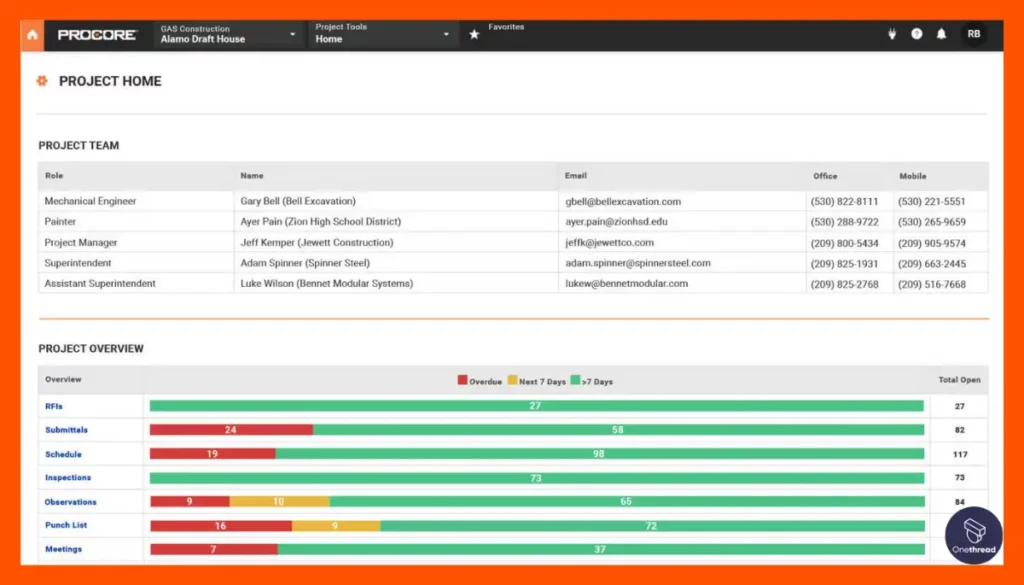
Procore offers an all-in-one platform for construction management. It helps you control outcomes, minimize risks, and protect profits. The software is designed to ensure that projects are completed safely, on time, and within budget.
User-Friendly Interface
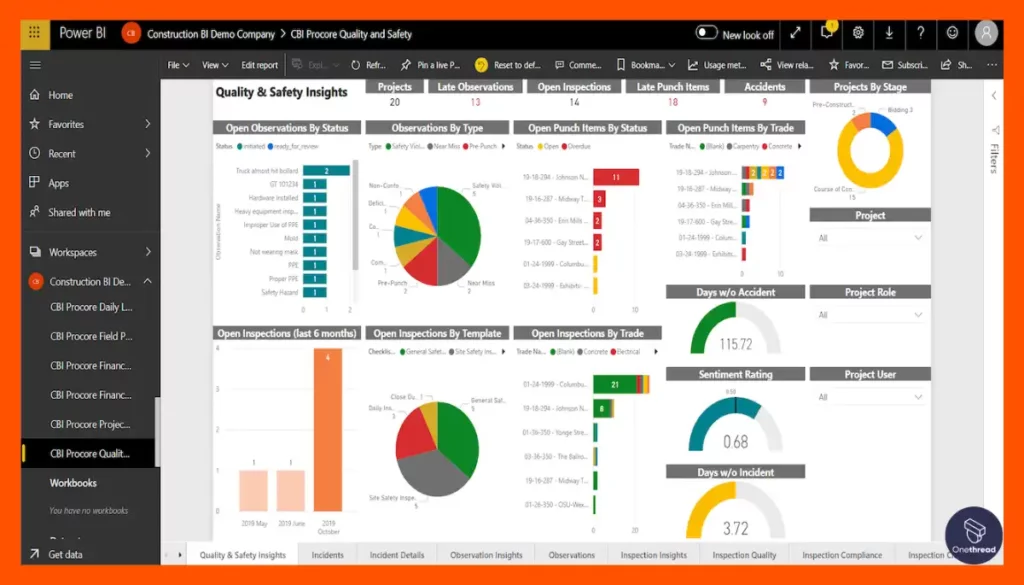
The interface is intuitive and easy to navigate. If you can send an email, you can use Procore. This ease of use ensures that team members can quickly adapt to the software, reducing the time spent on training.
Global Reach
Procore is used in over 150 countries and has managed more than 1,000,000 projects. This global reach means that it’s a trusted solution for engineering firms, regardless of their location.
Purpose-Built Solutions
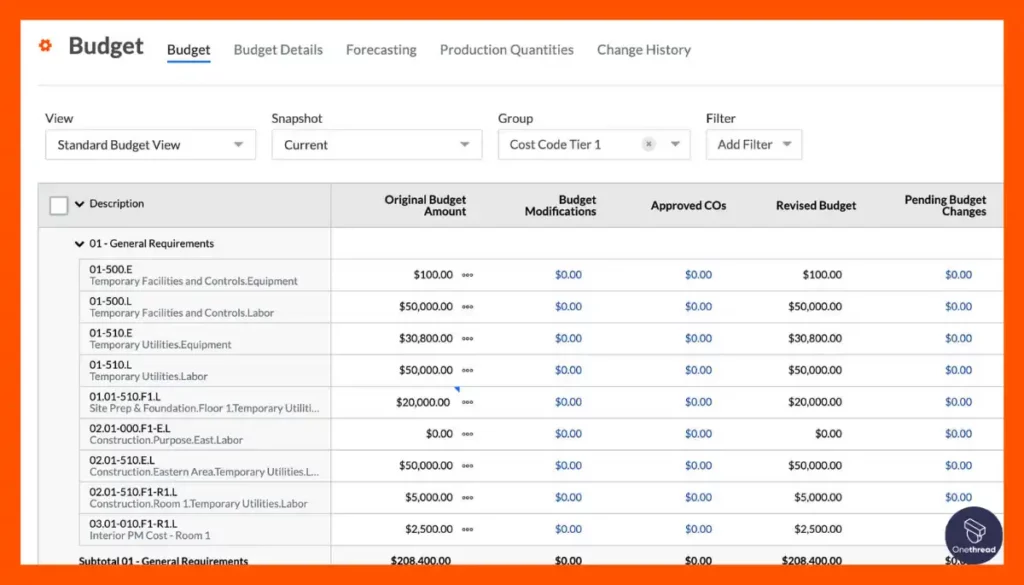
The software offers solutions that are purpose-built for your specific needs. Whether it’s quality control, safety protocols, or financial management, Procore has a tailored solution for you.
Exceptional Support
Procore provides support that goes beyond just software. They offer customer service that helps you get the most out of the platform, ensuring that you and your partners work more effectively.
Pros & Cons
Pros:
- Comprehensive feature set for construction management
- User-friendly and easy to adopt
- Global reach and reliability
Cons:
- Pricing can be on the higher side for small firms
- Some features may be too specialized for general use
Pricing Plans
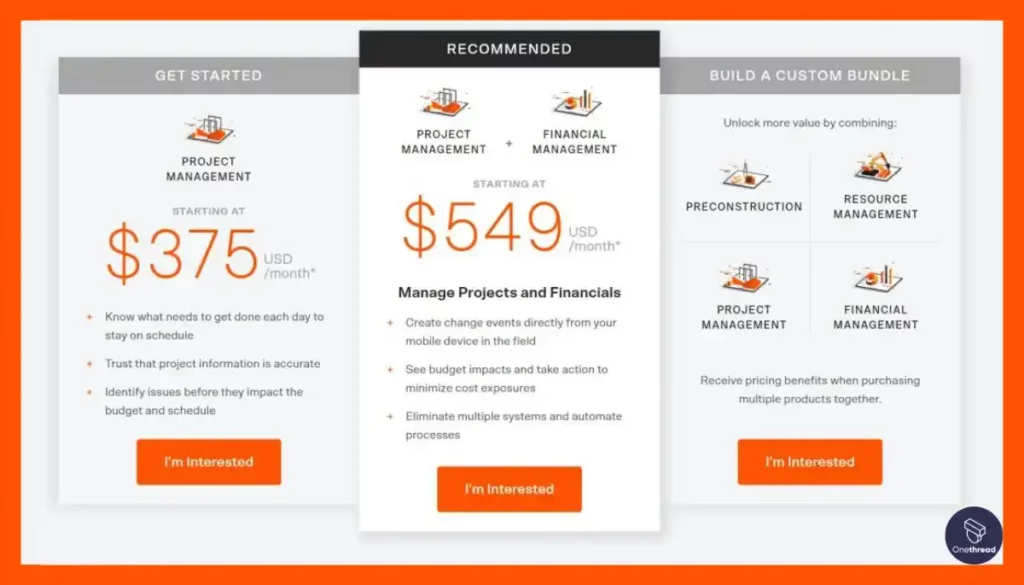
- Basic Plan: Custom pricing available upon request
- Standard Plan: Custom pricing available upon request
- Enterprise Plan: Custom pricing available upon request
Customer Ratings
- G2: 4.3 out of 5 stars
- Capterra: 4.5 out of 5 stars
Review
Procore is a comprehensive construction management software that we’ve used extensively. On the positive side, it streamlines project management with its user-friendly interface. We appreciate its ability to centralize project data, making collaboration smoother. The mobile app keeps us connected on-site.
However, there are a few drawbacks. The cost can be a burden for small contractors, and it may require training for full utilization. Some features, like the drawing tool, could be more intuitive.
We find its features helpful but acknowledge the learning curve and pricing challenges. It’s a valuable choice for larger construction firms with the resources to maximize its potential.
#3. Zoho
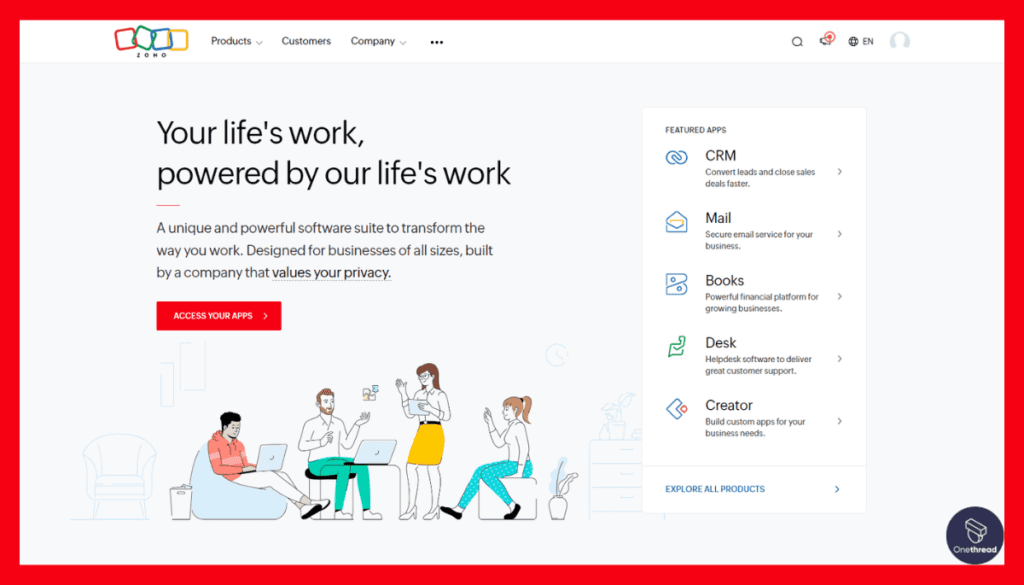
In the world of project management for engineering firms, Zoho stands out as a versatile and reliable software solution. It caters to the unique needs of engineers, offering a robust set of tools.
Zoho simplifies the complex task of managing projects by providing an intuitive platform. From task management to team collaboration, Zoho covers it all. Real-time project insights keep you informed, while cloud-based accessibility ensures you’re always connected, no matter where you are.
When it comes to streamlining project workflows, Zoho’s reputation speaks for itself. It’s a trusted ally for engineering prof essionals seeking efficiency and effectiveness in their project management endeavors.
Zoho Overview:
- Company Valuation: $3.8 billion.
- Employee Numbers: 16,000+ (2023)
- Founding Team: Founded by Sridhar Vembu and Tony Thomas.
Features
All-in-One Suite with Zoho One
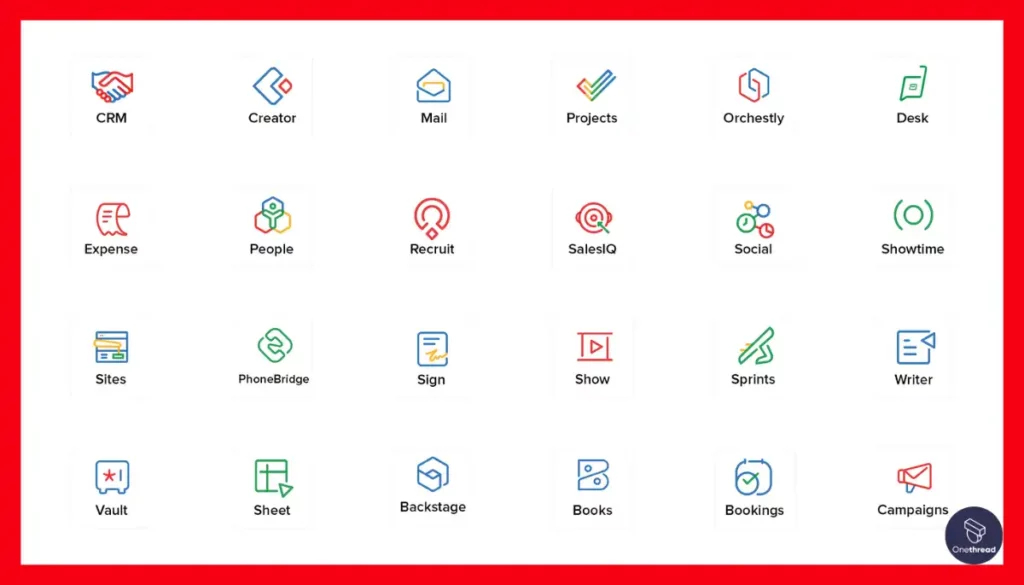
Zoho One is the operating system for your business. It breaks down silos between departments and boosts efficiency. Whether you’re a startup or an enterprise, Zoho One offers a unified cloud software solution that can manage your entire business.
Customizable Modules
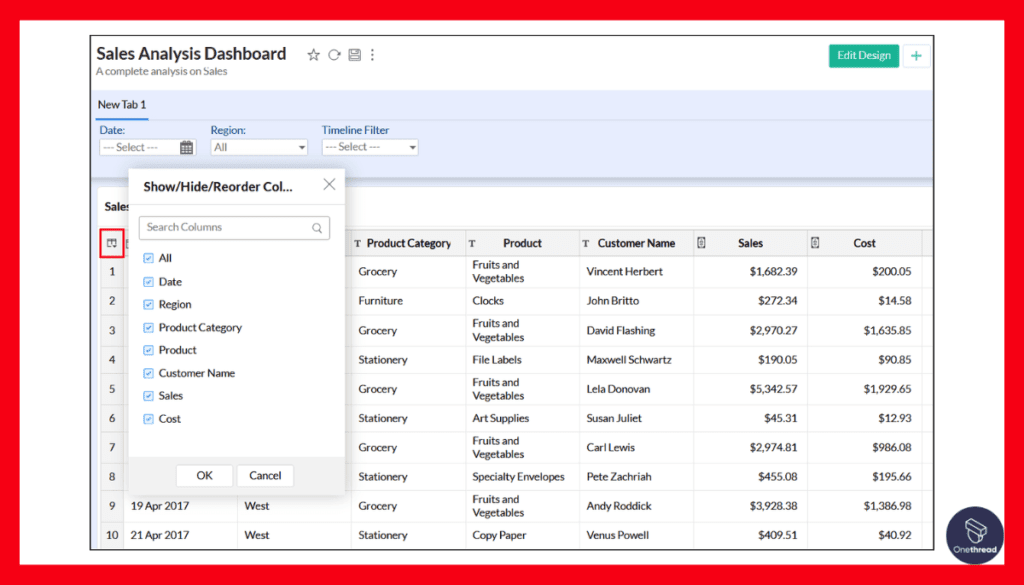
Zoho is highly customizable. You can tailor the software to fit your specific engineering needs. This means you can add or remove modules based on what your projects require, making the tool flexible and adaptable.
Robust Data Management
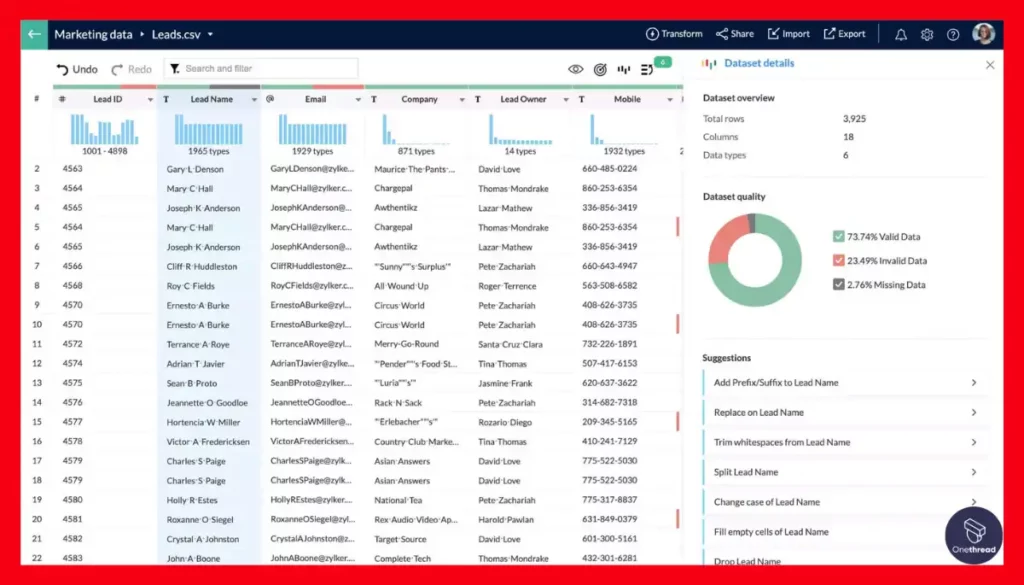
Data is crucial in engineering projects. Zoho offers robust data management features. It unites all your data into one platform, making it easier to track sales, investments, and other key metrics.
Professional Services and Support
Zoho offers professional services and support tailored for large businesses. This ensures that you have the infrastructure and assistance you need to streamline complex business processes and build strong customer relationships.
Focus on Privacy and Security
Zoho takes privacy seriously. They don’t own or sell your data. The software is built on a license-fee model, ensuring that your data remains secure and private.
Pros & Cons
Pros:
- Comprehensive all-in-one suite
- Highly customizable
- Strong data management capabilities
Cons:
- May be overwhelming for small teams
- Some modules may require a learning curve
Pricing Plans
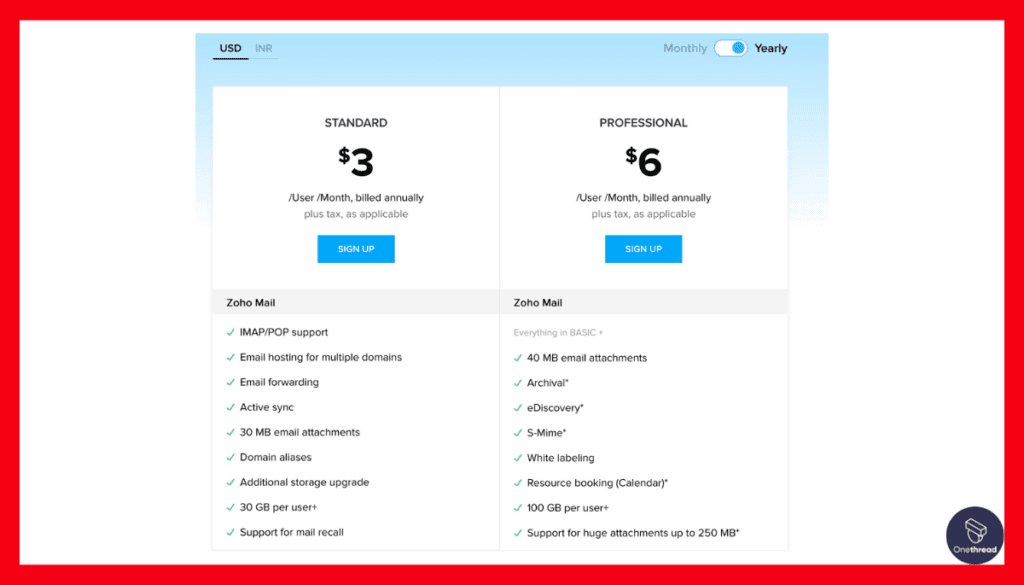
- Basic Plan: Custom pricing available upon request
- Standard Plan: Custom pricing available upon request
- Enterprise Plan: Custom pricing available upon request
Customer Ratings
- G2: 4.2 out of 5 stars
- Capterra: 4.3 out of 5 stars
Review
We’ve used Zoho extensively, and here’s what we’ve found. On the positive side, Zoho offers a suite of business applications that cover various needs, from CRM to project management. We appreciate the seamless integration between these apps, which boosts our efficiency.
However, there are some drawbacks. The user interface can sometimes feel cluttered and overwhelming. Also, while the pricing is competitive, some advanced features may require higher-tier subscriptions.
Zoho is a versatile solution for businesses. We like the integration but find the interface occasionally complex. It’s a cost-effective choice for those willing to explore its wide range of applications and adapt to its interface.
#4. Smartsheet
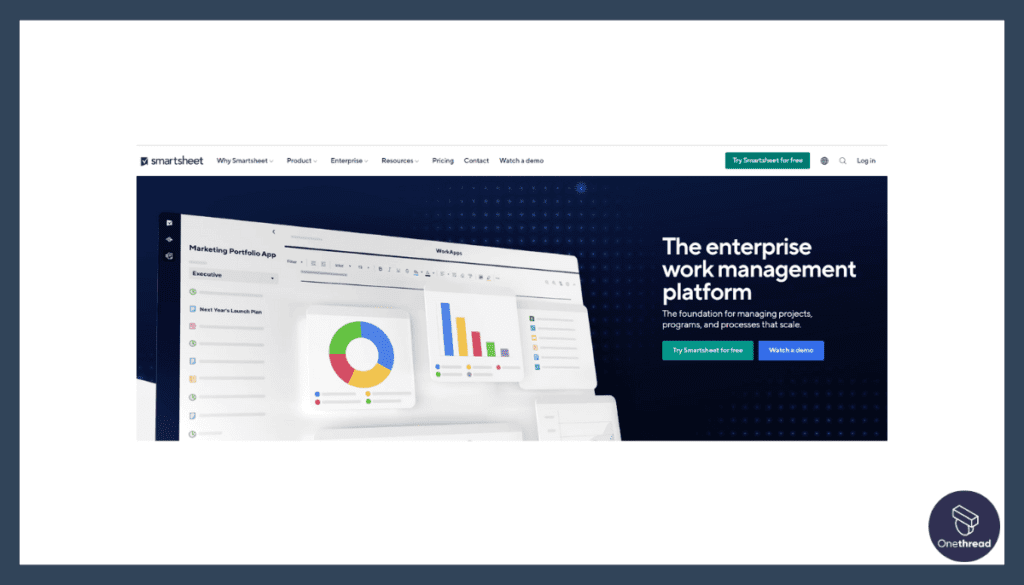
For engineering firms seeking an efficient project management solution, Smartsheet delivers. It’s a versatile software designed to simplify project tracking and collaboration. Smartsheet empowers you to create, update, and manage tasks effortlessly, keeping your projects on schedule.
With real-time visibility into project data, you can make informed decisions swiftly. Smartsheet’s user-friendly interface promotes seamless team collaboration, ensuring everyone stays on the same page.
This cloud-based platform allows access from anywhere, making it a go-to choice for engineering professionals. When it comes to effective project management, Smartsheet offers credibility and practicality that engineering firms can rely on.
Smartsheet Overview:
- Company Valuation: $5.47 billion as of October 2, 2023.
- Employee Numbers: 3,191 (2023)
- Founding Team: Founded by Mark Mader, Brent Frei, Eric Browne, John Creason, Maria Colacurcio, and Jeff Hemenway.
Features
Rich Set of Views and Workflows
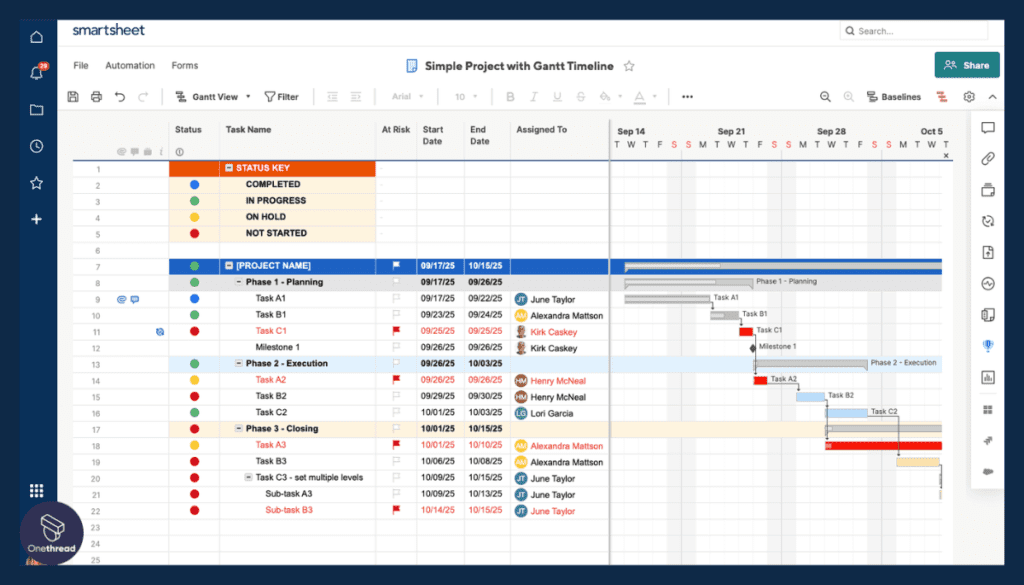
Smartsheet offers a variety of views, workflows, reports, and dashboards. This allows you to capture and track plans, resources, and schedules effectively. Whether you’re managing a single project or a multi-faceted company-wide initiative, Smartsheet adapts to your needs.
Accelerate Speed to Market
The platform combines a best-in-class user experience with process consistency. This helps in driving alignment, project delivery, and business results across your programs and portfolios. It’s designed to accelerate your speed to market, making it a valuable asset for engineering firms.
Empower Marketing and Creative Teams
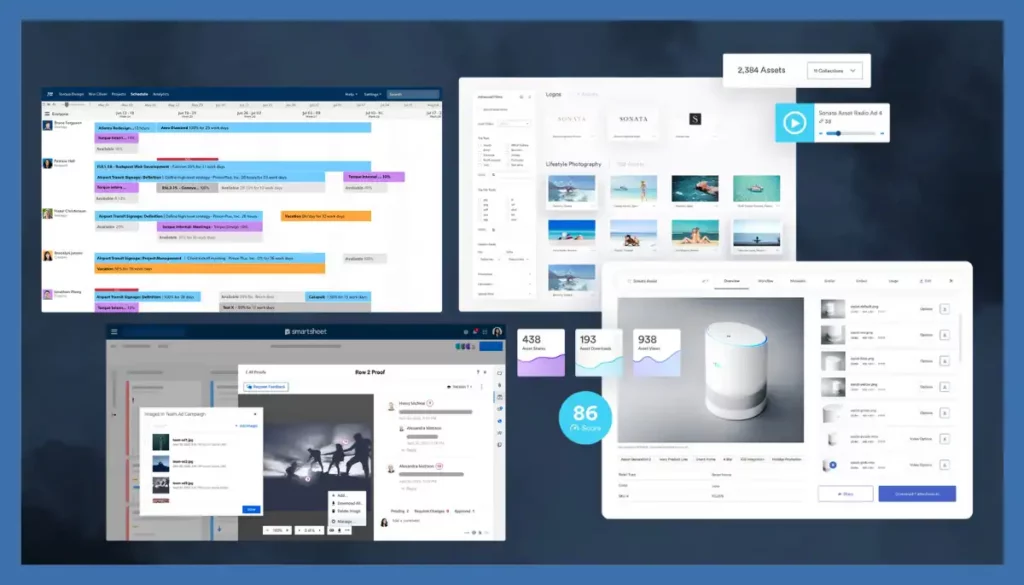
Smartsheet is not just for project managers; it’s also for marketing and creative teams. The platform helps manage marketing and creative work, content, and people. This ensures better customer experiences at scale.
Portfolio-Level Automation
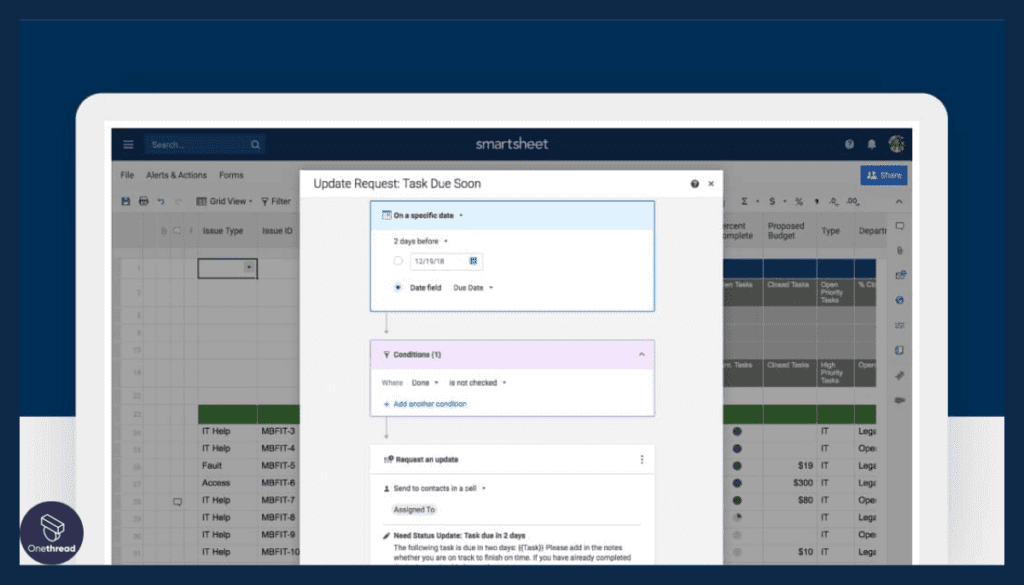
Smartsheet offers portfolio-level automation to implement lasting transformational change. It helps align people, priorities, and purpose, allowing your business to scale faster and more efficiently.
Seamless Integrations
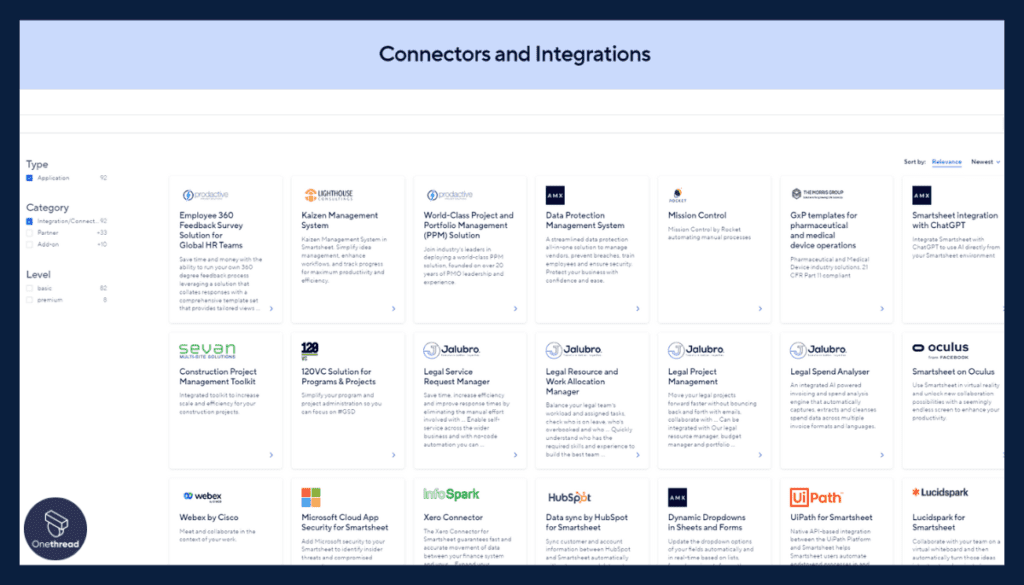
Smartsheet integrates with software you’re already using. This makes it easier to incorporate the platform into your existing workflow. It’s designed to work the way you do, adding to its usability and efficiency.
Pros & Cons
Pros:
- Versatile with multiple views and workflows
- Speeds up project delivery
- Strong focus on security and data protection
Cons:
- May require some time to fully explore all features
- Pricing can be a barrier for smaller firms
Pricing Plans
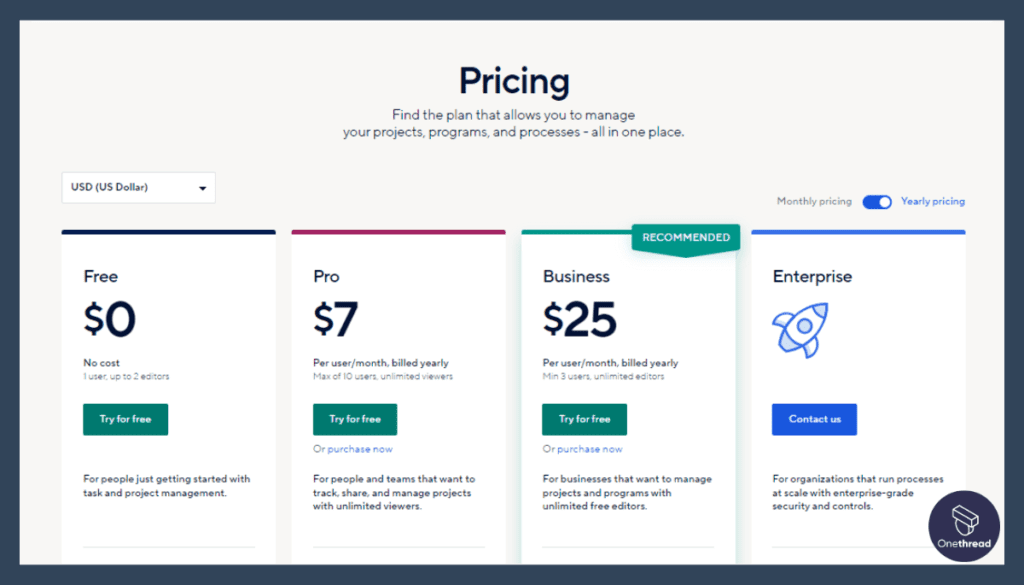
- Individual Plan: $14/month
- Business Plan: $25/user/month
- Enterprise Plan: Custom pricing available upon request
Customer Ratings
- G2: 4.1 out of 5 stars
- Capterra: 4.4 out of 5 stars
Review
On the plus side, Smartsheet simplifies project management with its spreadsheet-like interface. We appreciate its versatility in creating and tracking tasks, schedules, and workflows.
However, there are some downsides. Smartsheets might feel less intuitive for users accustomed to traditional project management tools. Also, advanced features, like automation, are only available in higher-tier plans, which can be costly.
We like its flexibility but acknowledge the learning curve and potential cost barriers for full functionality. It’s worth considering for teams looking for a spreadsheet-based approach to project management.
#5. Asana
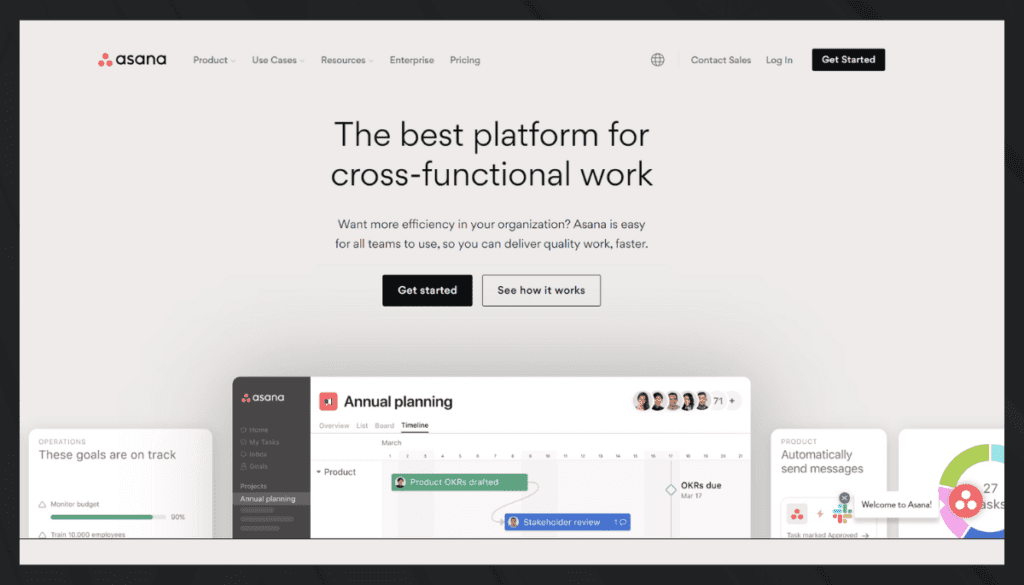
For engineering firms, Asana is the answer to efficient project management. It’s a user-friendly software designed to streamline tasks and collaboration.
Asana helps you plan, organize, and track projects with ease, ensuring they stay on course and within budget. Real-time updates keep your team informed, while the intuitive interface fosters seamless communication.
When it comes to credible project management, Asana stands out, offering the tools and reliability that engineering firms need to succeed. It’s flexible, easy to use, and helps teams deliver quality work faster.
Asana Overview:
- Company Valuation: $4.02 billion as of September 30, 2023.
- Employee Numbers: 1,782 (2023)
- Founding Team: Founded by Dustin Moskovitz and Justin Rosenstein.
Features
Cross-Functional Work Management
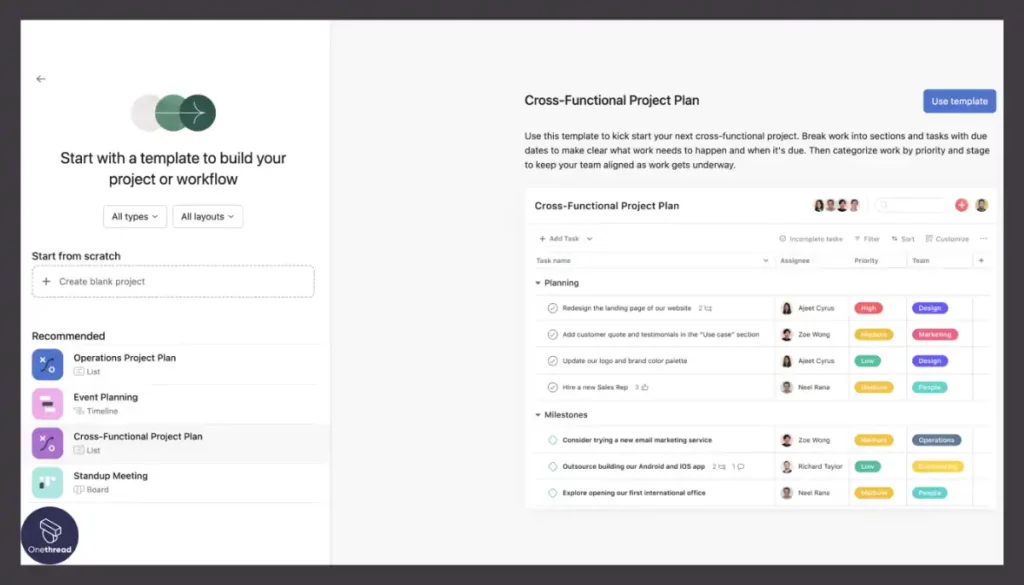
Asana excels in managing cross-functional work. It helps you collaborate on campaigns, automate processes for approvals, and quickly refocus around shifting business needs. This makes it ideal for engineering firms that often have to juggle multiple tasks and departments.
Real-Time Progress Tracking
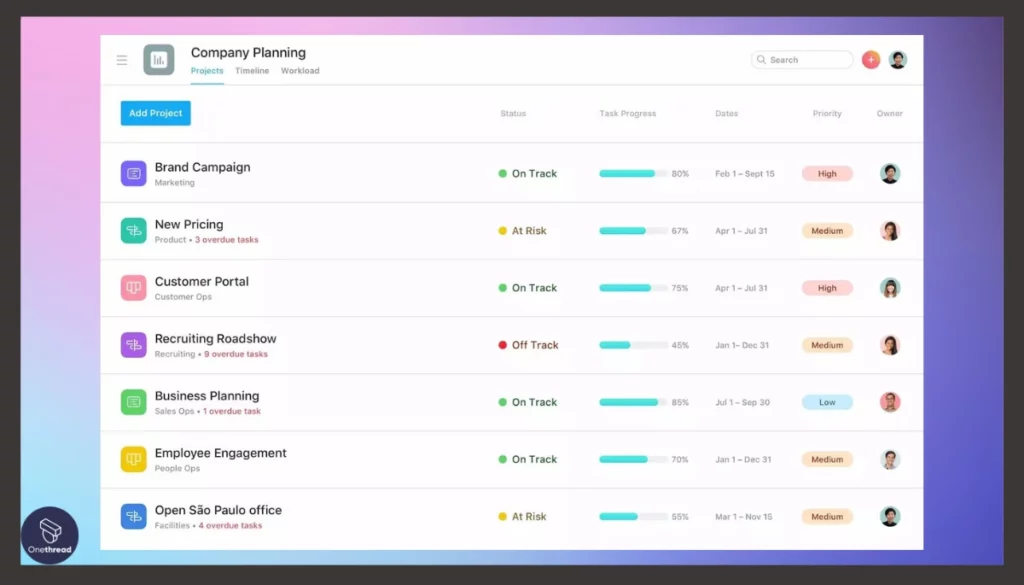
One of Asana’s standout features is its ability to track work and see progress in real-time. This is crucial for engineering projects where timelines are tight and delays can be costly. It helps in standardizing and automating processes to hit revenue goals.
Seamless Integrations
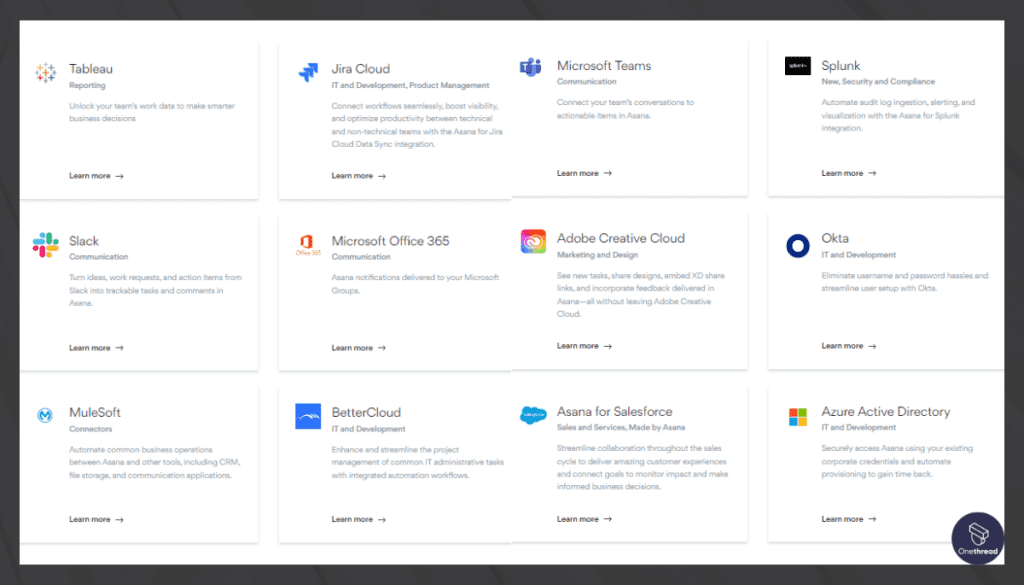
Asana offers seamless integrations with over 1000+ apps including Google Sheets, Microsoft Teams, and Adobe Creative Cloud. This means you can pull data, collaborate on tasks, and even turn action items from meetings into tasks without leaving the platform.
Resource and Goal Management
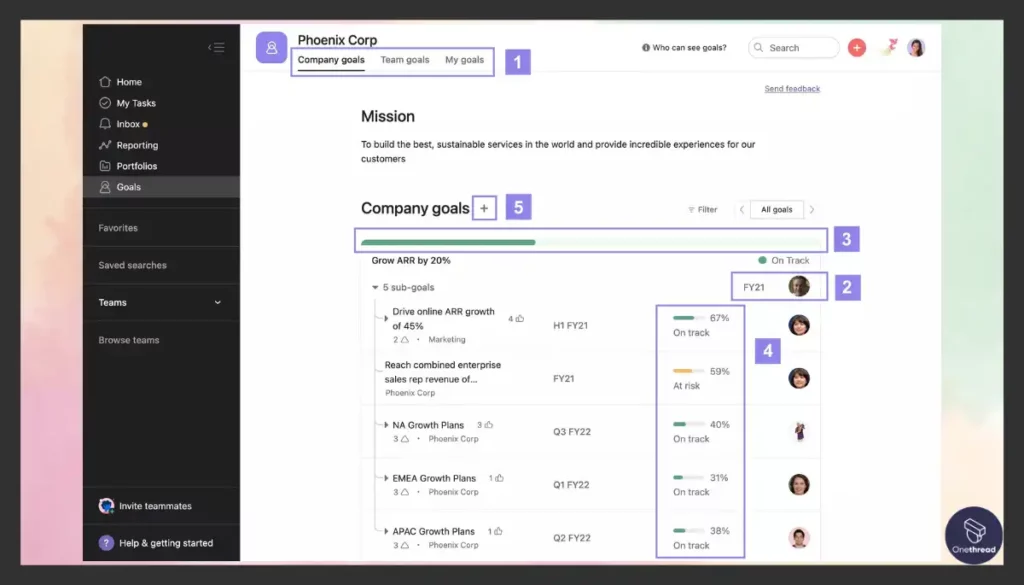
Asana allows you to track resources, goals, and progress all in one place. This is particularly useful for engineering firms that need to manage complex projects with multiple moving parts. It helps in spotting project gaps so you can instantly pivot and stay on track.
Strategic Planning
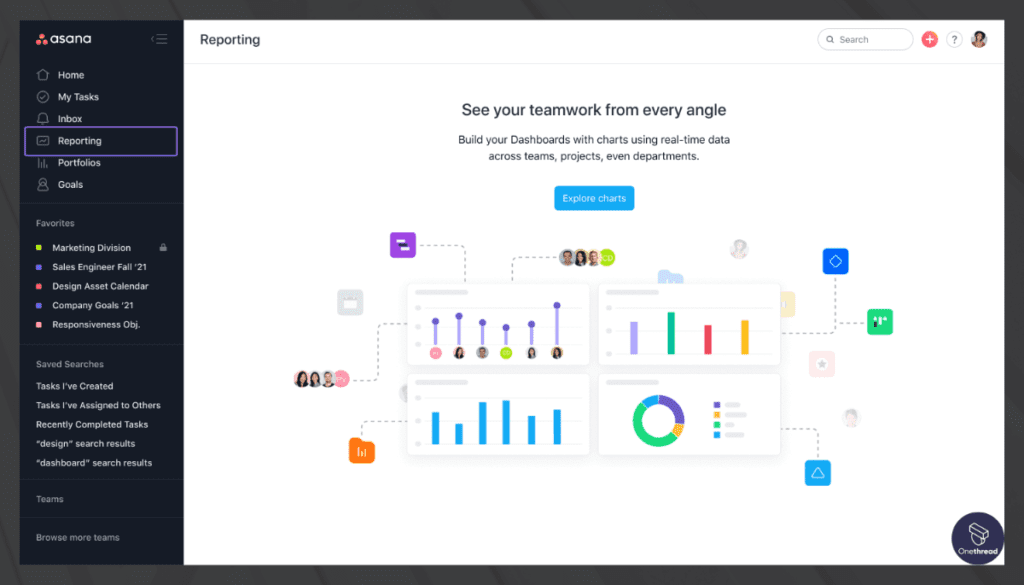
With Asana, you can align teams to execute winning strategies. It helps in setting annual plans and provides real-time insights to stay on track and on budget. This is essential for engineering firms that need to manage both short-term tasks and long-term goals.
Pros & Cons
Pros:
- Excellent for cross-functional work management
- Real-time progress tracking
- Wide range of integrations
Cons:
- May be overwhelming for small teams
- Some features may require additional training
Pricing Plans
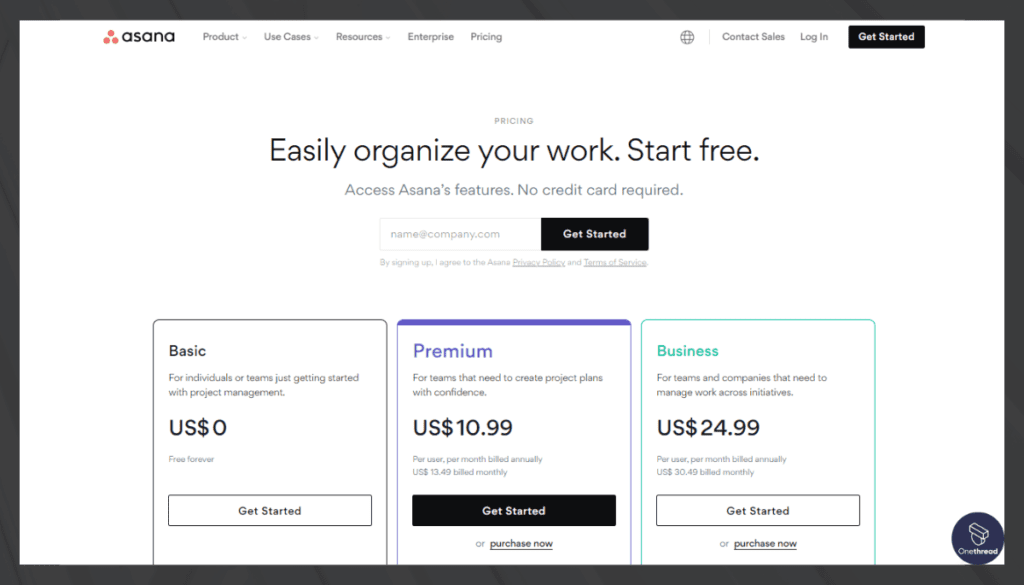
- Basic Plan: Free
- Premium Plan: $10.99/user/month
- Business Plan: $24.99/user/month
Customer Ratings
- G2: 4.3 out of 5 stars
- Capterra: 4.4 out of 5 stars
Review
In our experience with Asana, we’ve observed some pros and cons. Asana excels in task and project management, allowing us to organize work effectively. Its user-friendly interface simplifies collaboration and tracking progress.
However, there are a few drawbacks. Asana’s free version offers limited features, and the pricing for premium plans can add up, especially for larger teams. Additionally, the platform may become overwhelming for complex projects.
In summary, Asana is a solid choice for task management and team collaboration. It’s a valuable tool for small to medium-sized teams seeking organized and efficient project management.
Getting the Most Out of Project Management Software for Engineering Firms
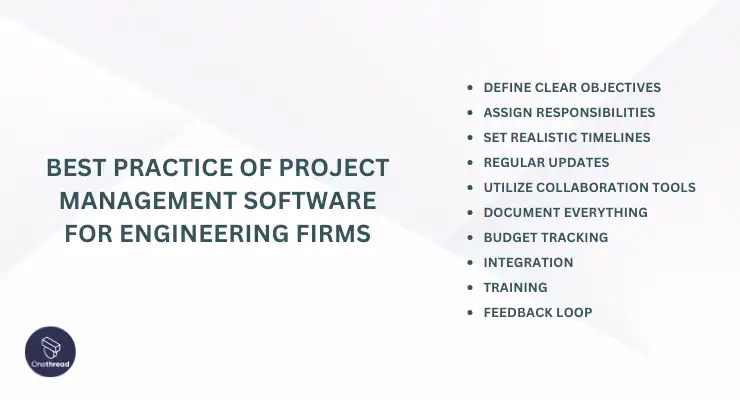
Following these best practices can help engineering firms maximize the benefits of project management software effectively.
- Define Clear Objectives: Start by establishing clear project objectives and goals within the software.
- Assign Responsibilities: Assign tasks and responsibilities to team members to ensure accountability.
- Set Realistic Timelines: Create achievable timelines and milestones to track progress effectively.
- Regular Updates: Encourage regular updates and status reports to stay informed on project developments.
- Utilize Collaboration Tools: Make the most of collaboration features to enhance communication among team members.
- Document Everything: Keep project documentation, such as plans, designs, and reports, organized within the software.
- Budget Tracking: Monitor project expenses and budgets to avoid overspending.
- Integration: Integrate the software with other engineering tools and software for seamless data flow.
- Training: Provide training to team members to ensure they are proficient in using the software.
- Feedback Loop: Establish a feedback loop to gather insights and improve processes continuously.
Conclusion
Project management software plays a pivotal role in enhancing efficiency and organization within engineering firms. It streamlines project workflows, fosters collaboration, and ensures timely delivery of projects.
By adopting the right software and implementing best practices, engineering firms can navigate complex projects with ease, stay within budget, and ultimately achieve success in an increasingly competitive industry.
FAQs
Can Project Management Software Handle Multiple Engineering Projects Simultaneously?
Yes, most project management software is designed to handle multiple projects concurrently. It allows engineering firms to efficiently manage and track various projects with ease.
What Security Measures are in Place to Protect Engineering Project Data?
Project management software typically employs robust security measures, including encryption, user access controls, and regular data backups, to safeguard sensitive engineering project data from unauthorized access or loss.
Is Cloud-Based or On-Premises Project Management Software Better for Engineering Firms?
The choice between cloud-based and on-premises software depends on the firm’s specific needs and preferences. Cloud-based software offers flexibility and accessibility, while on-premises solutions provide more control over data but may require higher upfront costs.
Can Project Management Software Help with Resource Allocation and Workload Balancing?
Yes, project management software assists in resource allocation by allowing firms to assign tasks and responsibilities to team members and balance workloads to ensure optimal resource utilization.
How Does Project Management Software Assist in Meeting Regulatory Compliance in Engineering Projects?
Project management software often includes features for document management and version control, making it easier for engineering firms to maintain compliance by ensuring that project documents meet regulatory standards and requirements.
